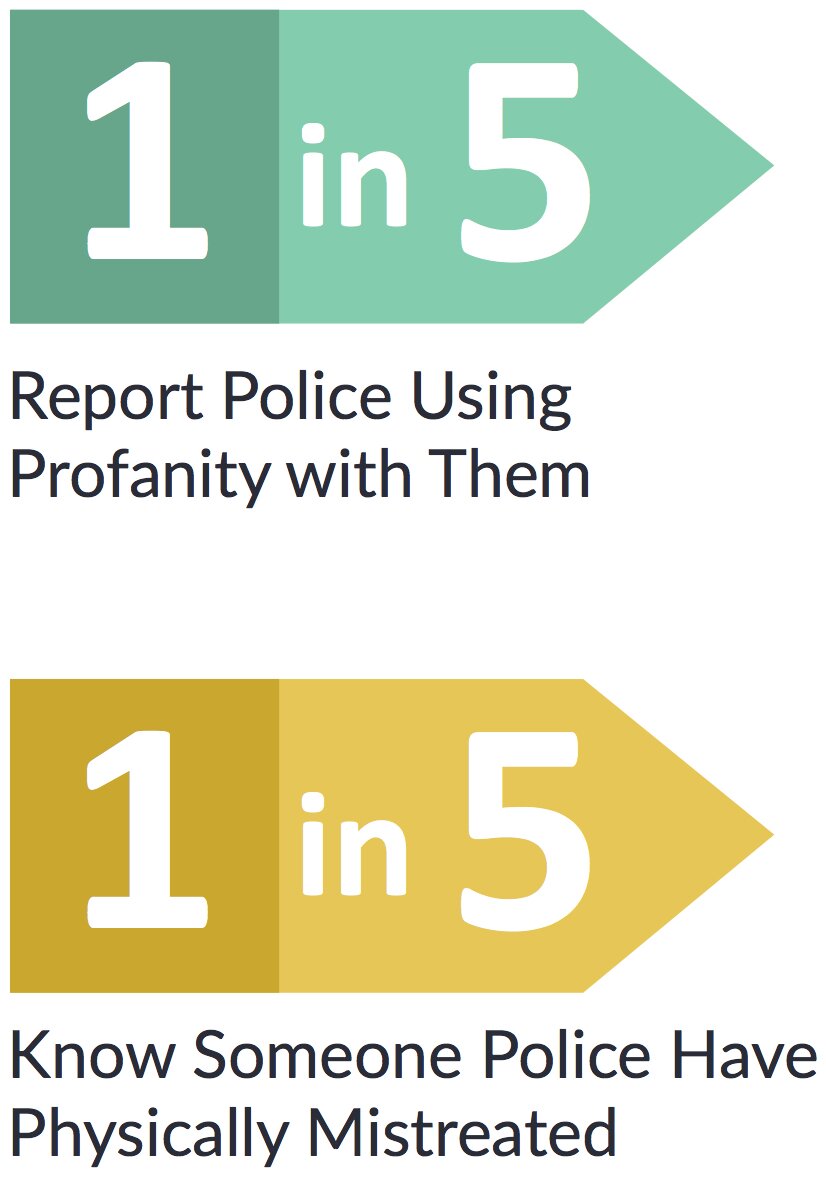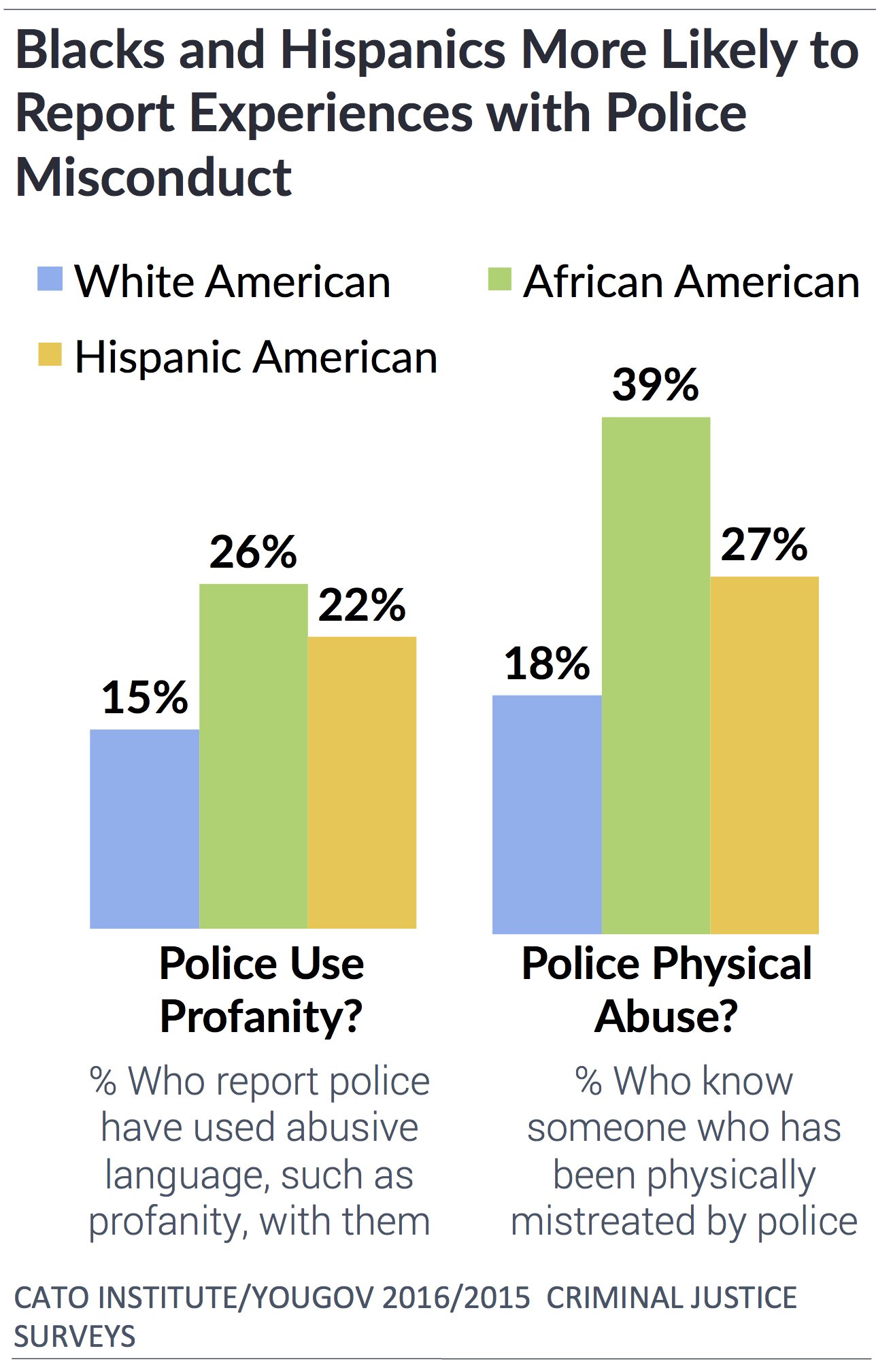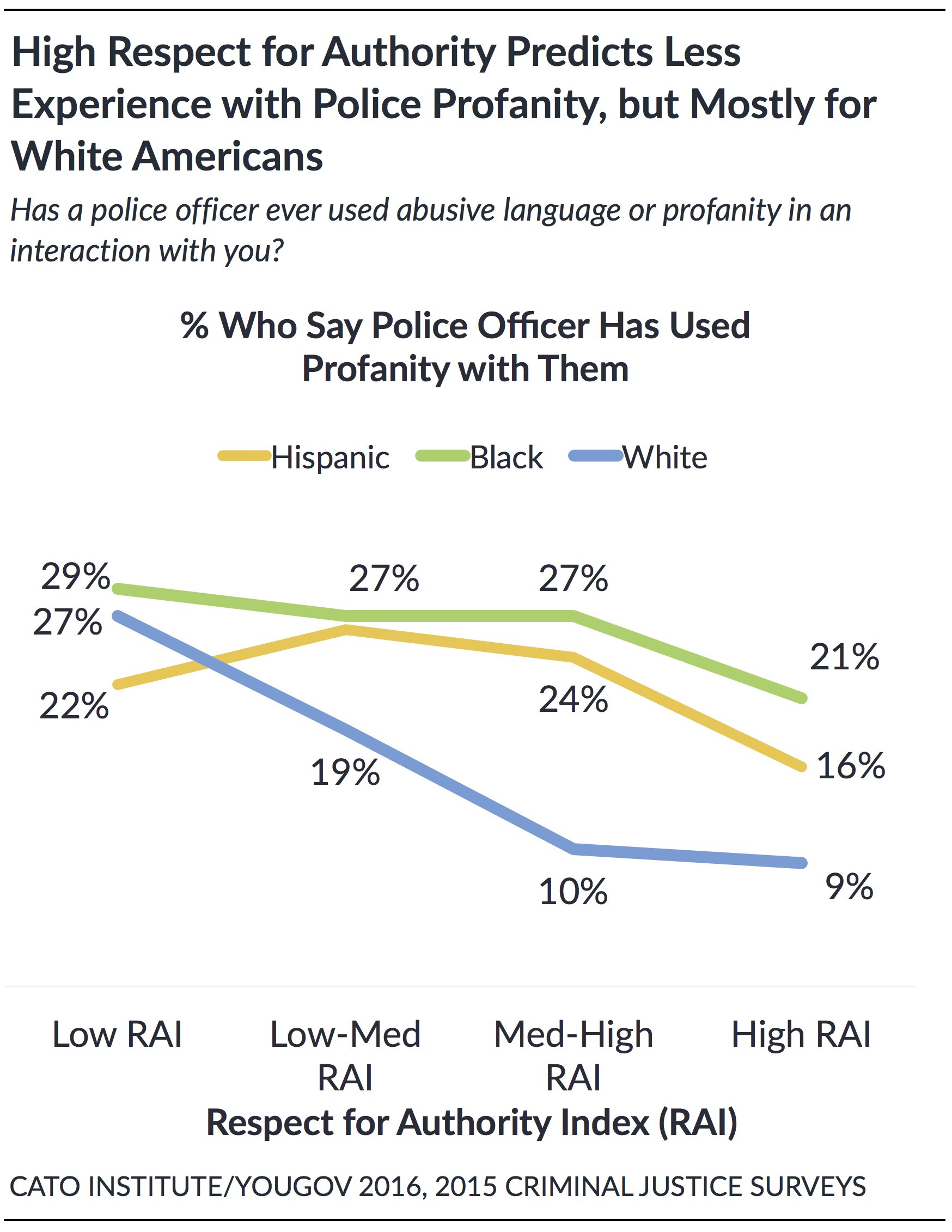About one in five Americans say a police officer has used profanity with them (17%) and say they know someone physically mistreated or abused by the police (21%).39
Reported experience with police mistreatment varies by race, age, gender, and income. African Americans are about twice as likely as whites to report profanity or knowing someone physically mistreated by the police. About a quarter of African Americans (26%) and Hispanics (22%) report police using abusive language with them compared to 15% of whites. Nearly 4 in 10 African Americans (39%) and 27% of Hispanics report knowing someone physically mistreated by police, compared to 18% of whites.
Men, millennials, and those making less than 30,000 a year (about a quarter) are also about 10 points more likely than women, seniors, and households making over $60,000 a year to report personal or vicarious experiences with police mistreatment.
An AP/NORC survey conducted in 2015 found that 57% of Americans thought that citizens' failure to cooperate with police during a stop was a "major reason" for police use of force.40 Some readers may wonder if police swearing occurs when citizens are uncooperative and disrespectful. Perhaps those inclined to respect authority defer to police and are thus less likely to incur verbal abuse.
To investigate, the author created a Respect for Authority Index (RAI), a composite scale based on averaging responses to three questions that measured people's general respect for authority without explicitly asking about police. (See Appendix E for question wording.) A higher RAI score indicates a respondent is more apt to respect authority figures. Higher RAI scores are not direct measures of deference to the police, but rather indicate a higher likelihood of deference.
Individuals with a higher RAI score are less likely to report police swearing at them; however, this finding primarily holds for white Americans. Among whites, those with low RAI scores are 3 times as likely as whites with high RAI scores to report experience with police profanity — 27% vs. 9%.41 In contrast, African Americans and Hispanics with lower RAI scores are not that much more likely than those with higher RAI scores to say they've experience police profanity.
This gives some indication that whites who are highly deferential toward the police may have better experiences, whereas blacks and Hispanics who are very deferential may not experience similarly improved treatment.
Unsurprisingly, only 40% of individuals who have personally or vicariously experienced verbal or physical abuse from officers have a favorable view of the police compared to 70% among those without these negative experiences. In sum, abuse at the hands of an individual police officer — whether individually or vicariously experienced — may be internalized and help explain differences in favorability toward the police.
Notes:
39 Data for this section come from the combined June 2016 and November 2015 national surveys (N=4000), which offer greater precision and smaller margins of error for subgroups.
40 Question wording: "Here are some reasons that have been given for police violence against civilians. For each one, please tell me whether you think it is a major reason, a minor reason or not a reason at all...Some civilians confront the police when they are stopped rather than cooperating". AP-NORC Center for Public Affairs Research, Associated Press-NORC Law Enforcement and Violence Survey, Roper Center for Public Opinion Research, iPOLL, July 2015.
41 High Respect for Authority (RAI) scores are defined as those in the top quartile, while low RAI scores are defined as those in the bottom quartile.


